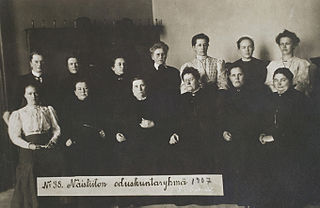
Bermuda is a parliamentary representative democratic dependency. The premier is the head of government, and there is a multi-party system.

The Alþingi is the national parliament of Iceland. It is the oldest surviving parliament in the world, a claim shared by Tynwald. The Althing was founded in 930 at Þingvellir, situated approximately 45 kilometres (28 mi) east of what later became the country's capital, Reykjavík. Even after Iceland's union with Norway in 1262, the Althing still held its sessions at Þingvellir until 1800, when it was discontinued for 45 years. It was restored in 1844 and moved to Reykjavík, where it has resided ever since. The present parliament building, the Alþingishús, was built in 1881, made of hewn Icelandic stone.
Elections to determine the makeup of the legislative bodies on the three levels of administrative division in the Kingdom of Sweden are held once every four years. At the highest level, these elections determine the allocation of seats in the Riksdag, the national legislative body of Sweden. Elections to the 20 county councils (landsting) and 290 municipal assemblies (kommunfullmäktige) – all using roughly the same electoral system – are held concurrently with the legislative elections on the second Sunday in September.

The Storting is the supreme legislature of Norway, established in 1814 by the Constitution of Norway. It is located in Oslo. The unicameral parliament has 169 members, and is elected every four years based on party-list proportional representation in nineteen plurinominal constituencies. A member of the Storting is known in Norwegian as a stortingsrepresentant, literally "Storting representative".
Regular elections in Croatia are mandated by the Constitution and legislation enacted by Parliament. The presidency, Parliament, county prefects and assemblies, city and town mayors, and city and municipal councils are all elective offices. Since 1990, five presidential elections have been held. During the same period, nine parliamentary elections were also held. In addition, there were six nationwide local elections. Croatia has held two elections to elect 11 members of the European Parliament following its accession to the EU on 1 July 2013.

Elections in Benin take place within the framework of a multi-party democracy and a presidential system. Both the President and the National Assembly are directly elected by voters, with elections organised by the Autonomous National Electoral Commission (CENA).

Elections in Bermuda have been taking place since 1620. Bermuda's current electoral system, with a lower house elected by all Bermudian status-holders, each casting a single vote, voting in single-member districts on the first-past-the-post method, came into effect with the 1968 constitution.

Elections in Gabon take place within the framework of a presidential multi-party democracy with the Gabonese Democratic Party, in power since independence, as the dominant party. The President and National Assembly are directly elected, whilst the Senate is indirectly elected.

Elections in Malaysia exist at two levels: federal level and state level. Federal level elections are those for membership in the Dewan Rakyat, the lower house of Parliament, while state level elections are for membership in the various State Legislative Assemblies. The heads of executive branch at both the federal and state levels, the Prime Minister and Menteri Besar/Chief Ministers respectively, are indirectly elected, usually filled by a member of the majority party/coalition in the respective legislatures.
India is a federation with a parliamentary system governed under the Constitution of India, which defines the power distribution between the union, or central, government and the states.

Elections in Togo take place within the framework of a presidential system. Both the President and the National Assembly are directly elected by voters. The country is a one party dominant state with the Union for the Republic in power.
In various parliamentary systems, a returning officer is responsible for overseeing elections in one or more constituencies.
Cornwall is a former county constituency covering the county of Cornwall, in the South West of England. It was a constituency of the House of Commons of England then of the House of Commons of Great Britain from 1707 to 1800 and of the House of Commons of the United Kingdom from 1801 to 1832. It was represented by two Knights of the Shire, elected by the bloc vote system.

There are six types of elections in the United Kingdom: elections to the House of Commons of the United Kingdom, elections to devolved parliaments and assemblies, elections to the European Parliament, local elections, mayoral elections and Police and Crime Commissioner elections. Within each of those categories, there may be by-elections as well as general elections. Elections are held on Election Day, which is conventionally a Thursday. Since the passing of the Fixed-term Parliaments Act 2011 for general elections, all six types of elections are held after fixed periods, though early elections to parliament and the devolved assemblies and parliaments can occur in certain situations. Currently, six electoral systems are used: the single member plurality system, the multi member plurality system, party-list proportional representation, the single transferable vote, the additional member system and the supplementary vote.

General elections were held in Bermuda on 22 May 1968. The result was a victory for the United Bermuda Party, which won 30 of the 40 seats in the House of Assembly. The Progressive Labour Party increased its representation by four to ten.

General elections were held in Bermuda in December 1980. The result was a victory for the United Bermuda Party, which won 22 of the 40 seats.

General elections were held in Bermuda on 4 February 1983. The result was a victory for the United Bermuda Party, which won 26 of the 40 seats.

The next general election in the United Kingdom is scheduled to be held on 5 May 2022 under the Fixed-term Parliaments Act 2011. The election may be held at an earlier date in the event of an early election motion being passed by a super-majority of two-thirds in the House of Commons, or a vote of no confidence in the government which is not followed by a vote of confidence within 14 days.












